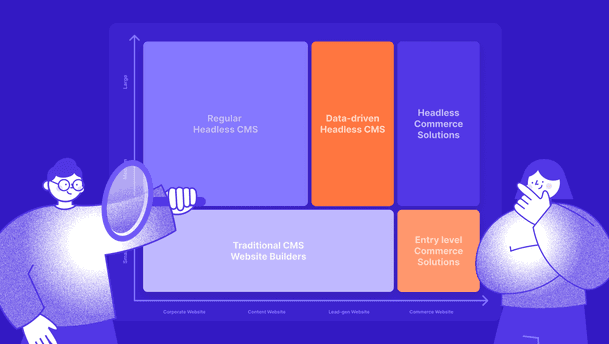Mark Zuckerberg once said: “Figuring out what the next big trend is, tells us what we should focus on.”
This isn't just a statement; Zuckerberg has a track record of seeing things before they happen. Take Facebook's success in mobile ads – he saw that coming. In 2017, he called video a mega trend, and Facebook invested heavily in short-form video content. And he was right… again.
Zuckerberg's words resonate not only in the industry of social media but they extend to broader technological contexts. To be honest, they work everywhere.
Since our focus is on web development, let’s bring his words back to the CMS world.

For about 25 years, Content Management Systems (CMSs) have been vital tools for organizations. They've enabled users to easily create, manage, and modify digital content without needing to be tech experts. The digital market changes fast, and organizations need to keep up with the latest content management trends to stay competitive.
Right now, there are a couple of big CMS trends that are making a real impact. Let’s explore them.
1. AI is transforming the CMS from editor to assistant
We can say it loud and clear. Artificial Intelligence (AI) is everywhere and has become an integral part of our everyday lives. In modern CMS platforms, AI has evolved from being a simple add-on to becoming a core capability, streamlining the entire content lifecycle, from creation to delivery and optimization.
Here are just a few of the AI-powered functionalities now built into leading CMS solutions:
- AI-assisted content creation helps teams write faster, summarize long articles, and localize content automatically.
- Smart tagging and organization reduce manual effort and improve content discoverability.
- SEO optimization tools suggest keywords, structure improvements, and metadata to boost visibility.
- Personalized recommendations deliver the right content to the right user, in real time.








